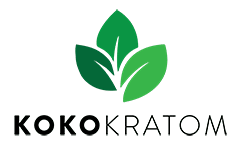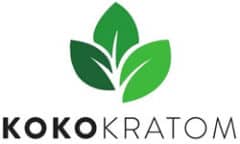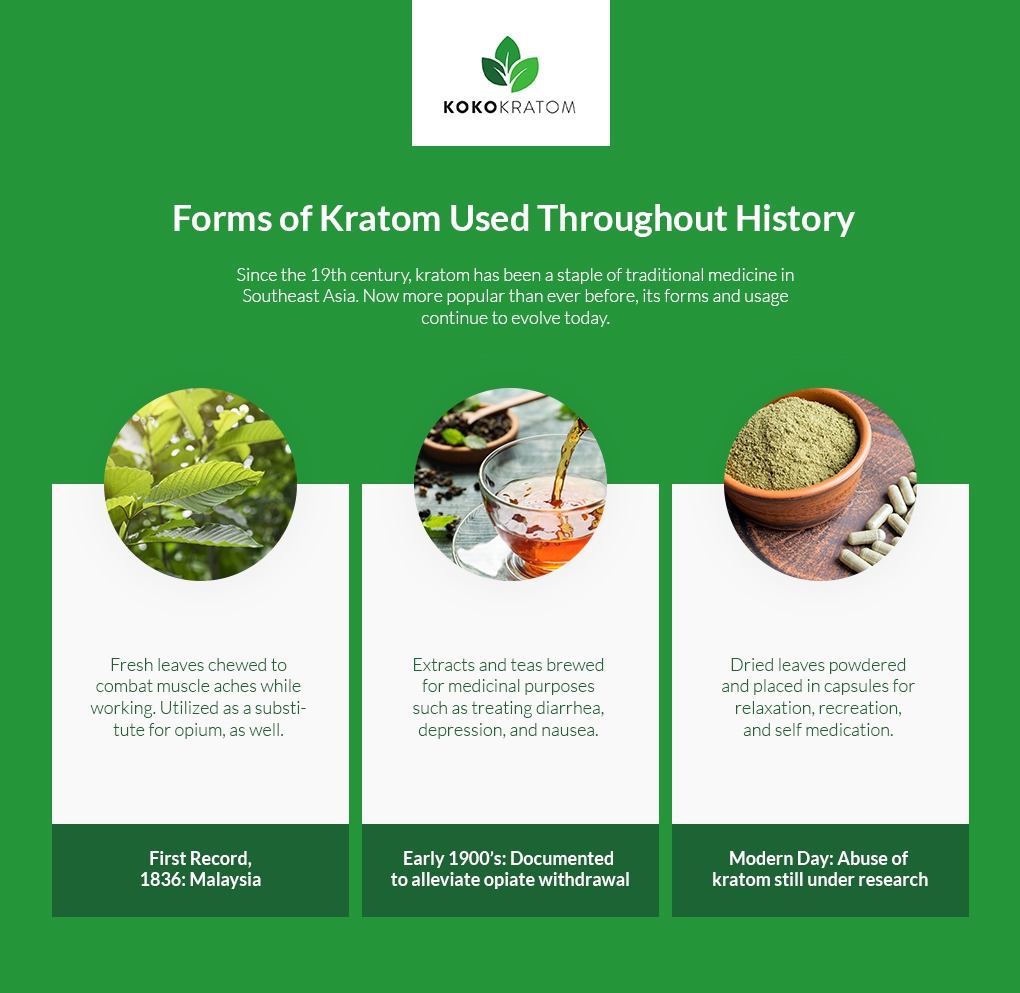What is Kratom?
A tree, an herb, a controlled substance’what is kratom and where does it come from? After more than a decade on the international scene, this mysterious leaf and its kratom alkaloids have gone from relative obscurity to worldwide fame. Kratom information will help you to decide whether you’d like to buy some of this controversial powder for yourself, so let’s dive in and learn all about this fascinating plant!
Deep in the Jungles of Southeast Asia…
The powder we refer to as kratom is actually the dried and powdered leaves of the Mitragyna speciosa tree which grows in the jungle areas of Southeast Asia. Over 200 years ago, these trees ranging from 10-100 feet grew in the wild and could be found in the rainforests of:
- Thailand
- Malaysia
- Vietnam
- Laos
- Sumatra
- The Sunda Isles
- Papua New Guinea
In each of these countries, Mitragyna speciosa has been known by several different names, and kratom information such as cultural use varies according to each local tradition.
While kratom continues to be used socially and medicinally across Southeast Asia, illegal logging and kratom eradication efforts by the governments of Thailand and Malaysia have made Indonesia the new location for the greatest concentration of wild and cultivated kratom trees.
Coffee & Kratom Information: What Do They Have in Common?
A member of the Rubiaceae plant family, kratom is related to coffee’although you wouldn’t guess it from the flavor! The coffee we drink comes from the roasted seeds or ‘beans’ of the plant, whereas the useful part of Mitragyna speciosa is the leaf, which can grow up to 7 inches in length and 4 inches in width.
Like coffee, kratom is used as a mild stimulant to help workers stay awake and alert throughout the day. Unlike coffee, kratom has an awful taste that is disguised by packaging it in capsules or mixing it with something sweet.
Kratom Alkaloids: The Big Draw Card
If you’re looking for kratom information because of what this leaf is said to do, then you’ll want to explore its alkaloids. Similar to the caffeine in coffee, the alkaloids in kratom are the natural chemicals that give it its signature effects, including:
- Stimulation
- Relaxation
- Stress relief
- Pain relief
Of over 40 alkaloids that have been identified in kratom information so far, scientists tend to focus on the two most abundant: Mitragynine and 7-hydroxymitragynine. Kratom research in the western world has examined the way that these alkaloids bind to the opioid receptors in the brain in an attempt to explain its popularity as an opiate-withdrawal herb in Southeast Asia and its potential for addiction recovery programs in the United States.
Traditional and Modern Uses of Kratom
In its native context, kratom information has been passed down from generation to generation and has not been codified into herbals in the way we tend to do in the western world. Ethno-medical studies indicate that fresh kratom leaves were chewed by laborers to help them combat fatigue and muscular aches during long working days in the sweltering sun. The leaves were also brewed into tea, which continues to be a popular drink in Malaysia and is sold by the name of air ketum.
Kratom leaves played a role in folk medicine, too, with traditional uses including the treatment of:
- Diarrhea
- Diabetes
- Fever
- Pain
- Wounds
In the western world, kratom has only become known in the last decade or two and is typically swallowed as a dried leaf powder for its stimulating, relaxing, calming, and analgesic properties.
The 411 on Kratom Strains
If you’ve been reading kratom information on sales websites, you will have quickly noticed that there are three main types of powder offered to consumers: Green, red, and white. Rather than being the result of genetically different Mitragyna speciosa trees with differently colored leaves, these labels are based on the vein colors seen on the underside of the leaves, which are present in different numbers on every kratom tree and tend to contain very different alkaloid profiles.
As leaves with each vein color are harvested and placed in separate piles, distinct drying processes are used to bring out each of the three colors for marketing and sale:
White vein kratom information explains that this leaf type contains a profile of kratom alkaloids that is more stimulating and uplifting with less of the relaxing overtones of red- and green-vein varieties. To produce white-vein kratom’s signature brown color, the leaves are dried indoors with little or no light before being micro-powdered and packaged for shipment.
Green vein kratom information describes this powder as producing a mixture of the effects seen with whites and reds. Green vein kratom is produced by drying the leaves inside a dark, air-conditioned room followed by a further drying period outside in the sun. The powder is described as stimulating at low doses and relaxing or soothing at high doses.
The most abundant of the kratom powder colors, red vein kratom is produced using natural or lamp light and often an additional process of fermentation. Its effects are described as the most relaxing and pain relieving’making this kind of kratom especially popular for use in the evening and before going to sleep.
Beyond the color, kratom information should include the geographical origin of any powdered leaf for purchase. As Indonesia has the most favorable laws surrounding kratom cultivation, sale, and export, most of the different genetic strains of kratom are actually grown there nowadays. Here is a list of the most common strains and where they are grown:
- Sumatra kratom is harvested from old-growth forests and kratom plantations on the Indonesian island of Sumatra.
- Borneo kratom is harvested in the wild in the Indonesian sector of Borneo.
- Malay kratom is harvested in Indonesia just over the Malaysian border.
- Thai kratom comes from historical Thai strains that are now cultivated throughout Indonesia.
- Bali kratom could refer to any leaf grown in Indonesia and shipped to the world via the international port in Bali.
- Maeng Da kratom simply means ‘pimp grade’ and could come from any genetic strain. This kratom typically has a stronger alkaloid content and more pronounced effects than other leaf powders.
Shop Pure, Lab-Tested Kratom at Koko Kratom
After educating yourself with our detailed kratom information, you might be keen to order a packet and try it for yourself. Due to kratom’s legal situation in the U.S., the products at Koko Kratom cannot be sold as a health supplement and our kratom is sold as ‘not for human consumption.’
In order to offer you the purest and most trustworthy product possible, each of our batches of dried leaf powder has been analyzed independently for contaminants and kratom alkaloids. That way, you know exactly what you’re getting and won’t settle for an inferior or adulterated product. Contact our team to learn more and enjoy same-day shipping when you buy our kratom online.





